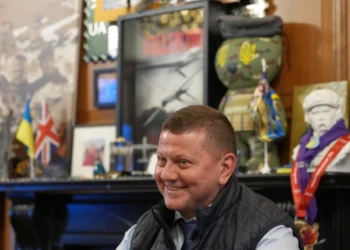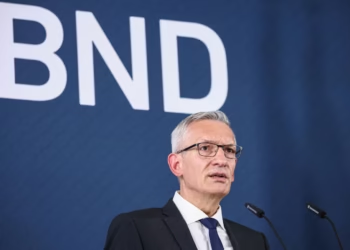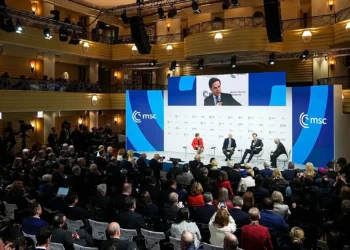WASHINGTON (Realist English). President Donald Trump and Secretary of State Marco Rubio are spearheading a dramatic restructuring of the National Security Council (NSC), part of a broader push to centralize national security decision-making within the State and Defense Departments and cut what the administration views as entrenched, unelected bureaucracy.
The overhaul follows the recent departure of National Security Advisor Mike Waltz, who has now been nominated to serve as U.S. Ambassador to the United Nations. The White House says it intends to shrink the NSC’s size, which it views as bloated and dominated by long-serving officials resistant to the administration’s agenda.
“The NSC is the ultimate Deep State,” a senior White House official told Axios, which first reported the restructuring. “It’s Marco vs. the Deep State. We’re gutting the Deep State.”
Leadership reshuffle
In Waltz’s absence, Rubio has assumed the role of National Security Advisor, in addition to his posts as Secretary of State, acting Archivist, and acting Administrator of USAID — which the administration is moving to dismantle altogether.
Two key Rubio allies, Andy Barker, National Security Advisor to Vice President JD Vance, and Robert Gabriel, Assistant to the President for Policy, will be elevated to deputy national security advisor roles as part of the realignment.
The shake-up comes in the wake of the Signal chat leak controversy, in which Waltz and Defense Secretary Pete Hegseth discussed potential military action against the Houthis. The incident intensified internal efforts to purge staff perceived as security liabilities or politically disloyal.
NSC overhaul: from White House to cabinet control
The National Security Council, traditionally housed within the White House, has served as the president’s principal forum for coordinating national security and foreign policy across departments. But under Trump’s second-term agenda, the NSC’s role will be dramatically scaled back, with major responsibilities reassigned to the State Department, Pentagon, and newly empowered policy planning offices.
“This is about accountability,” said a senior administration official involved in the restructuring. “The president and secretary want fewer layers between decisions and outcomes. The NSC has become an obstacle to that.”
Dismantling USAID
The move to consolidate power has also extended to foreign aid. Fox News Digital reported earlier this month that the State Department will absorb USAID’s remaining programs and personnel, effectively dissolving it as an independent agency. According to an internal memo, the transition will require cutting thousands of staff while preserving “life-saving” assistance initiatives through a more streamlined structure.
Rubio, who has taken a lead role in this transition, has defended the decision as a strategic modernization of U.S. foreign assistance. Critics, however, warn that eliminating USAID’s operational independence could undermine long-term development goals and humanitarian responsiveness.
The Trump-Rubio agenda marks a radical shift in the post-9/11 U.S. national security framework. By dismantling the NSC’s traditional authority and centralizing decision-making within loyalist-controlled departments, the administration is recasting the architecture of American power. Whether this results in faster, clearer policymaking or heightens internal dysfunction remains to be seen. But one message is clear: this is not a return to normal — it’s a controlled demolition of the old national security consensus.


















